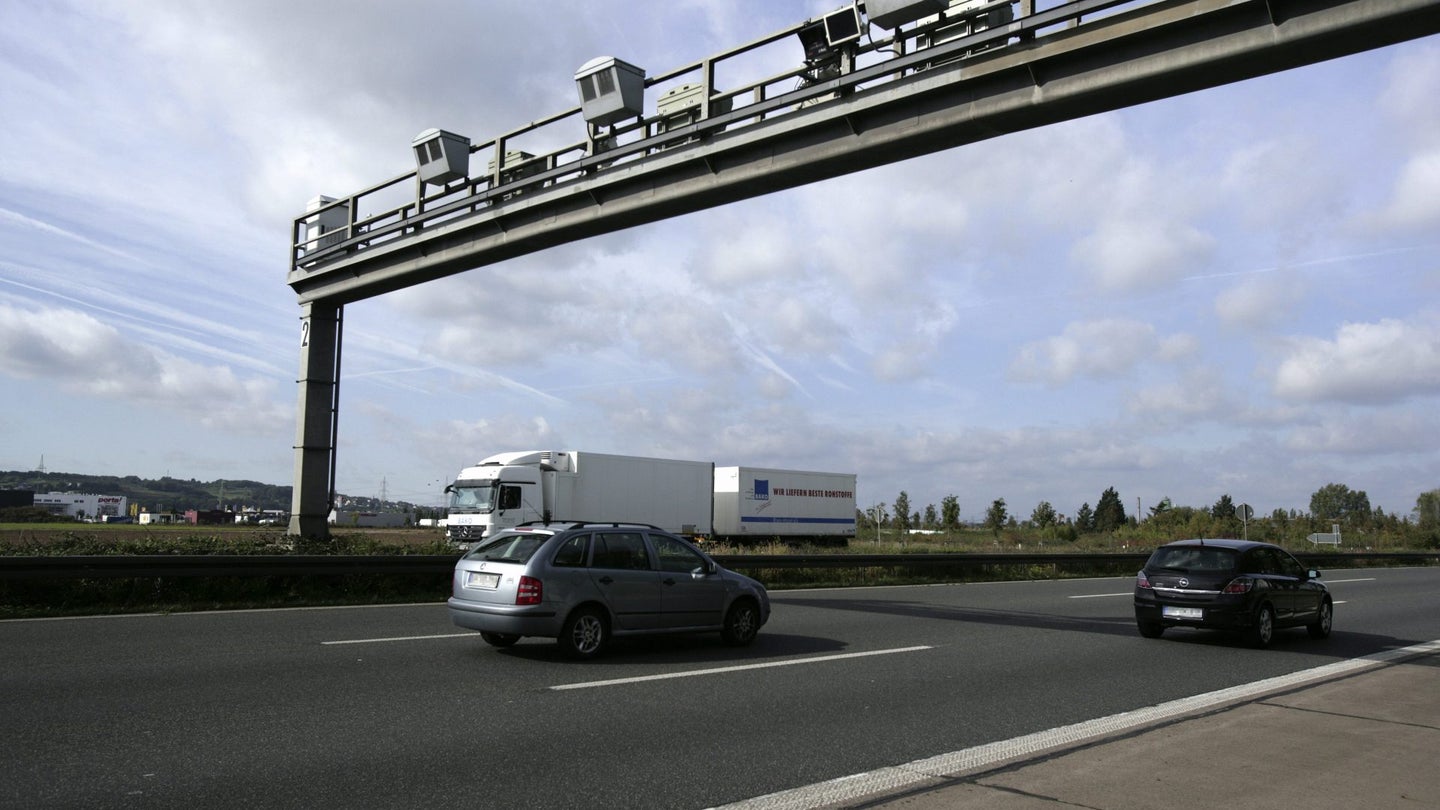Traffic Cameras in Alabama City ‘Unconstitutional’ According to Lawsuit
Plaintiffs allege city’s move to photograph license plates while relabeling red-light violations as a civil penalty is motivated by profit, creates constitutional- and civil rights violations.

Civil Penalties Have a Lower Burden of Proof
Two Alabama men and a Georgia company are plaintiffs in a suit that alleges the use of traffic cameras by Phenix City, Alabama is unconstitutional, according to Law360. At issue is not the expected right-to-privacy argument, but the assertion that the city and Redflex Traffic Systems Inc. conspired to profit from civil and constitutional rights violations by mislabeling the criminal offense of running a red light as a civil offense—lessening the burden of proof necessary to find guilt.
“For-profit entities cannot be afforded the ability to do the police’s job for them,” plaintiffs Thomas F. Worthy, James D. Adams, and Willcox-Lumpkin Co., said in their complaint. “This practice amounts to an unlawful grant of police discretion to defendant Redflex, and the profits they obtained are ultimately gained through a blatantly unconstitutional practice, which has deprived plaintiffs and class members of their civil rights.”
The red light camera program kicked off in 2012, the same year, according to the plaintiffs, the city adopted the ordinance allowing a civil rather than criminal penalty to be levied against owners of vehicles found to have run a red light.
Red-Light Cameras Create a Two-Tiered System
According to the complaint, Redflex's camera systems, which photograph the license plate of vehicles running stop signs, creates a situation in which drivers stopped by law enforcement personnel must be proven guilty beyond a reasonable doubt, while those plates were photographed must only clear the easier "preponderance of evidence" standard. From the complaint:
In actuality, the ‘hearings’ are simply a redundant look at what the city already decided. In this case, there is not a review by anyone other than an additional employee of Phenix City looking at a computer screen. It is clear that there are no ‘witnesses’ or contractors from defendant Redflex present at the hearings, and plaintiffs and class members had no opportunity to challenge anything.
The complaint further accuses Phenix City of outsourcing police work, contravening federal and state constitutions.
